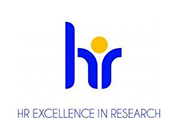-
Partager cette page
- Research,
- University life,
Jean Moulin Lyon 3 University receives the France 2030 “AMI SHS” (call for expressions of interest in research programmes in the humanities & social sciences)

France 2030’s call for expressions of interest in research programmes in the humanities & social sciences (AMI-SHS), launched by the General Secretariat for Investment together with the French Ministry of Higher Education and Research, and operated by the French National Research Agency (ANR), aims to develop research programmes to structure the Humanities and Social Sciences in France and to respond to the major challenges facing society.
This unprecedented and exceptional success for Jean Moulin Lyon 3 University reflects the dynamism of the institution’s research laboratories and researchers. The application, led by Isabelle Delpla, Vice-President for Research, required months of work and cooperation with universities, grandes écoles and research organisations.
Gilles Bonnet, President of Jean Moulin Lyon 3 University, is delighted with this success:
The superb success of this call for projects shows that our strategy, led by Isabelle Delpla, was the right one, and that mobilising our researchers was particularly relevant in these three major subjects. Our ambition was to support the emergence of new cross-disciplinary collaborations with institutions throughout France. The recognition of Jean Moulin Lyon 3 University as a leading national research player is excellent news and a great encouragement for the future.
Jean Moulin Lyon 3 University is a member of the following award-winning consortia
- DémoCIS : The evolution of democracies
-
Led by the University of Lille, in partnership with the CNRS and Inria.
Members: Grenoble Alpes University, Jean Moulin Lyon 3 University, CY Cergy Paris University, IEP Saint Germain en Laye, IEP Grenoble
Today’s multifactorial democratic crisis is challenging our societies to (re)build the commons in the face of fragmented public spaces. DémoCIS brings together an interdisciplinary group of excellence from four universities, three IEPs, the Institut Mines Télécom, the CNRS and Inria (336 researchers and professors from 51 research units, including 16 CNRS joint research units and 1 CNRS proprietary research unit) to tackle four major challenges:- Responding to the institutional crisis through democratic innovation;
- Rethinking the places and forms of citizenship expression;
- Acting against the polarisation of societies and information disorder;
- Strengthening threatened democracies.
- ReligiS : Religions
-
Led by the University of Strasbourg, in partnership with the CNRS.
Members : University of Lorraine, EHESS, INALCO, Sciences Po / FNSP, Aix-Marseille University, ENS Lyon, University Lumière Lyon 2, the French School of Athens, Jean Moulin Lyon 3 University, EPHE, BNUS
The issue of religions has become both ubiquitous and more problematic than ever, due to the extreme complexity and diversity of its manifestations, with many questions raised in the public debate. These developments pose new questions for institutions (government, local authorities, hospitals, schools, the justice system, prisons, businesses).
ReligiS focuses on the transformation of interactions between religions and societies in the contemporary world, from a long-term perspective. Its main objective is twofold: to develop a new scientific framework, resolutely open, interdisciplinary and international, in order to rethink the processes of transforming relations between religions and societies; and to create the institutional conditions for a large-scale change in the mechanisms and actions for transferring academic knowledge on religions to political decision-makers and society.
- FORESEE : The consequences of climate change
-
Led by Grenoble Alpes University, in partnership with the CNRS and INRAE.
Members: University of Lille, Jean Moulin Lyon 3 University, University of Bordeaux, University Montpellier 3
After decades of accumulating scientific knowledge, the consequences of climate change are now being felt, intimately and on a very large scale. The starting point of the Foresee project is that this experienced dimension of the consequences of climate change, which is still largely unexplored, is essential for understanding the diverse reactions that arise, for documenting the conflicting social dynamics they give rise to, and for proposing ways of bringing about sustainable and equitable change.
Foresee draws on the diversity of the humanities and social sciences to shed light on three interrelated issues: the plurality of discourses and arguments in the face of the consequences of climate change; the epistemological obstacles to understanding the planetary boundaries and the mechanisms of resilience, resistance and adaptation of territorial organisations; and finally the way in which (in)equality and (in)justice force us to profoundly revisit the foundations of the social contract.

